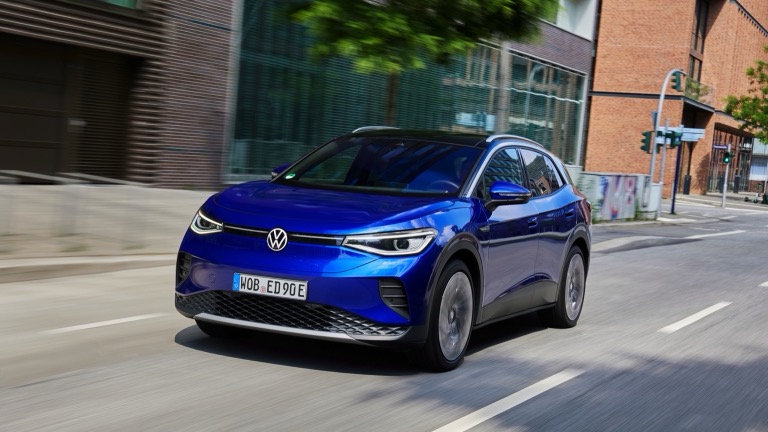
A recent Productivity Commission recommendation to remove the fringe benefits tax (FBT) exemption for electric vehicles has stirred debate across industry and government circles. The proposal – floated ahead of next week’s federal economic reform summit – puts two contentious ideas back on the table: abolishing the FBT concession for novated EV leases and introducing a nationally consistent road user charge (RUC) for low- and zero-emission vehicles.
What’s at stake
The FBT exemption, introduced under the 2022 Electric Car Discount Bill, allows electric vehicles priced below the luxury car tax threshold to be acquired through novated leases without attracting FBT. For many employees, that exemption translates to thousands of dollars in savings and has helped drive uptake of battery-electric and plug-in hybrid vehicles.
The Productivity Commission argues the exemption should be removed now that the NVES CO2 reduction scheme has been introduced. The Commission also notes the exemption has become expensive: in 2023 it calculated the policy’s cost-effectiveness ranged between $987 and $20,084 per tonne of carbon abatement and pointed to a significant blowout in total cost as uptake exceeded early expectations.
Industry reaction
Matthew Hobbs, a long-time automotive government affairs lobbyist with experience at Holden, Nissan, the Motor Trades Association and the Federal Chamber of Automotive Industries, described the PC recommendation as “a kite flying exercise.” Hobbs told EV Central he doubts the exemption will be scrapped ahead of the scheduled 2026 review of FBT settings.
Hobbs’ argument is practical and market-focused: strict fleet emissions standards like the NVES are typically paired with demand-side incentives to prime EV adoption and keep prices competitive. Remove those incentives too early, he warns, and the very outcomes NVES seeks – rapid electrification and ample tradable emissions credits – could be undermined. “Where they’ve put a tough fuel-efficiency standard in place, the flipside is that they have some sort of EV incentive to pump-prime as well,” Hobbs said.
Treasury and the PC have long been sceptical of fringe benefits concessions. Treasury is reportedly concerned the exemption’s cost has exceeded $500 million. The PC’s broader economic philosophy – avoiding market distortions and “picking winners” – underpins its push to pare back subsidies and state-based EV incentives, even as it recommends targeted emissions-reduction incentives for heavy vehicles.
Road user charges: the next political test
While the FBT debate may settle into a public consultation cycle, a national road user charge feels closer to reality. Federal Treasurer Dr Jim Chalmers has publicly signalled support for a national RUC to replace revenue that has declined as fuel excise receipts fall with rising EV use. Internal and intergovernmental conversations have revived interest in a scheme that would apply to battery-electric vehicles and plug-in hybrids.
State governments have been testing their own approaches. Victoria attempted a road user charge in 2021, proposing up to 2.6 cents per kilometre for zero- and low-emission vehicles, but the High Court in 2023 found the Victorian scheme functioned as an excise – a revenue-raising measure that, under the Constitution, only the Commonwealth can impose. The legal ruling creates a substantial constitutional hurdle for state-level RUCs and pushes the conversation back to the federal arena.
Several states – including New South Wales, Western Australia and South Australia – have indicated intentions to introduce RUCs. NSW has set a potential start date of July 1, 2027, or when EVs reach 30 per cent of new car sales, whichever comes first. Key questions remain: how to design a charge that is fair, administratively simple and legally robust; who will pay (owners, fleets, leaseholders); and how to calculate an appropriate per-kilometre rate compared with the current fuel excise (ICE vehicles currently attract 51.6 cents per litre).
Why the political theatre matters
The economic reform summit presents a convenient forum for governments to “run ideas up the flagpole,” as Hobbs puts it. Proposals such as the RUC or changes to negative gearing can be floated publicly to test appetite and measure political blowback. Not every idea that surfaces will become policy – some are deliberately exploratory – but the process also shapes stakeholder expectations and industry planning horizons.
What to watch next
- The Productivity Commission’s recommendations will be scrutinised during consultations and by the 2026 FBT review timetable.
- The federal government’s response at the economic reform summit will indicate the degree of policy urgency around a national RUC.
- Legal advice and constitutional considerations will continue to shape state and federal approaches to any road user charging model.
- How incentives and regulatory measures align (NVES targets, FBT settings, state rebates and potential RUCs) will determine the speed and fairness of Australia’s EV transition.
Conclusion
For now, the FBT exemption remains intact and is unlikely to be removed in the immediate term. The Productivity Commission’s recommendation has reignited an important policy debate but faces political, economic and consultative steps before it would translate into law. Conversely, a national road user charge is gaining traction as governments confront falling fuel excise revenue, and the coming months – through summit discussions, intergovernmental talks and legal analysis – are likely to determine whether a RUC becomes a central plank of Australia’s EV policy framework. Both measures will significantly influence the cost calculus for buyers and fleets, and demand careful design to balance revenue, equity and decarbonisation goals.
FAQs
Q: Will the FBT exemption for electric vehicles be removed soon?
A: It is unlikely to be removed imminently. The Productivity Commission recommended axing it, but industry sources expect the exemption to remain until at least the scheduled 2026 review of FBT arrangements.
Q: What does the FBT exemption cover?
A: The exemption applies to electric vehicles (including certain plug-in hybrids under the 2022 Bill) purchased via novated leases if the vehicle price is under the luxury car tax threshold, removing FBT that would otherwise apply and delivering substantial savings for many buyers.
Q: What is the rationale for removing the exemption?
A: The Productivity Commission contends the exemption is costly and less necessary with the NVES CO2 reduction scheme in place. It has highlighted high costs per tonne of carbon abatement and a growing fiscal burden.
Q: What is a road user charge (RUC) and who would pay it?
A: A RUC is a per-kilometre charge intended to replace some fuel excise revenue lost as more drivers switch to EVs. Designs vary, but charges could be applied to vehicle owners, fleets or via odometer/telematics reporting, and would likely include both battery-electric and plug-in hybrids.
Q: Are there legal barriers to state-level road user charges?
A: Yes. Victoria’s 2021 scheme was struck down by the High Court in 2023 on the basis it amounted to an excise – a power reserved for the Commonwealth. That ruling complicates state-only RUC schemes and shifts the primary responsibility to the federal government.
Q: When might a national RUC start?
A: No firm national start date exists. Some states (for example, NSW) have local timetables tied to EV market penetration (NSW targets July 1, 2027, or when EVs reach 30% of new-car sales). Federal timing will depend on policy design decisions and legal considerations.
Q: How does this affect people with novated leases and fleet managers?
A: Potential changes to FBT or the introduction of a RUC could alter the total cost of ownership calculations for employees using novated leases and for corporate fleets. Employers and fleet managers should monitor policy developments and consider scenario planning.
About EV Evolution
EV Evolution is the leading online platform dedicated to Australian electric vehicle owners and enthusiasts. We foster a vibrant community, delivering essential EV news and insights, and enhancing user engagement through our innovative, AI-powered chatbot for dynamic discussions. Our mission is to empower Australian electric vehicle owners and enthusiasts by fostering a vibrant, AI-driven online community that connects, informs, and advances the nation’s electric vehicle landscape.




 and then
and then 